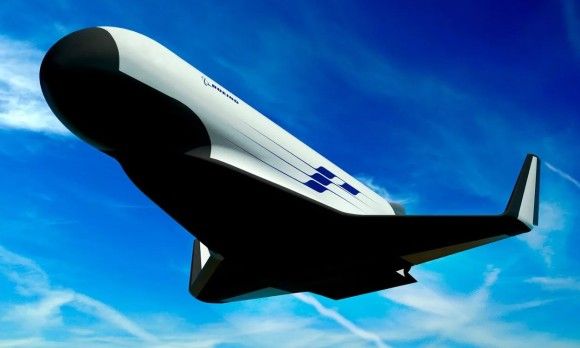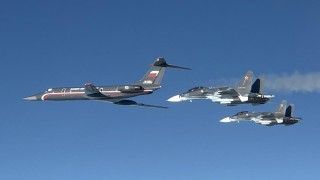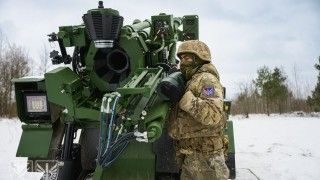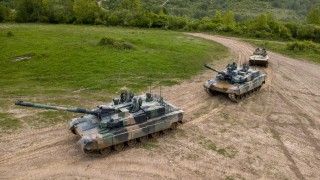- WIADOMOŚCI
- KOMENTARZ
Leopard 2 PL in the fog
The modernization project of the Leopard tanks reveals the significance of competition between foreign weaponry suppliers. A lack of competition results in stiffening the supplier’s position, resulting in an aversion to the technology transfer to the Polish defence industry. In this situation, cancellation of the lasting proceedings and announcing a new one is the only solution in which the competition will be guaranteed.
The proceedings concerning the modernization of Leopard tanks was started in October 2013. At first three consortiums were involved in the proceedings:
- ZM Bumar-Łabędy, OBRUM and PHO (probably supported by Krauss Maffei Wegmann),
- Military Automotive Works from Poznań, Military Communications Works No. 2 from Czernica with the German Rheinmetall Landsysteme GmbH,
- PCO with the Turkish ASELSAN Electronics.
I indicated above that the first consortium is probably supported by KMW because Bumar-Łabędy has cooperated with this company in earlier years. It should be assumed that in the case of the modernization of the Leopard tank the PHO consortium is also supported by this company, which has surely been documented in the proceedings. Otherwise, the consortium of PHO, Bumar-Łabędy and Obrum would not have any ability for carrying out the contract, which would result in its exclusion from the proceedings.
The preliminary offer was submitted in March 2014 only by a consortium operating under the PHO patronage, which indeed resulted in the change of the character of the proceedings, that is, from competitive ones to negotiations with one supplier. It seemed that in this situation the agreement should be concluded in no more than one month's time and that the first modernised tanks should be delivered still in 2014.
Meanwhile, at the end of August public opinion was touched by the information that the German producer of Leopards was blocking the technology transfer to the Polish armaments industry, which resulted in a stalemate in the negotiations of the agreement concerning the modernization of Polish Leopards. In reaction to this information,on August 27, minister Siemoniak wrote on Twitter: "Polish companies have not reached an agreement. We will begin the procedure, this time with consolidated PGZ". At the same time MOD officially announced that the reason of the delay was an insufficient technology transfer to the Polish armaments industry.
New information from MOD indicates that on the submission date of the final offer, i.e. till 5 December, 2014, the offer of PHO, Obrum and Bumar-Łabędy consortium was received.
I am quoting rudimentary information from media not due to a particularly surprising course of the proceedings but because of the conclusions which should be drawn.
First, it should be indicated that in the proceedings there was effectively used the para-offset tool called polonization. In the procurement announcement published on the Inspectorate of the Weaponry website it is indicated that the contractor will be obliged to establish the potential for conducting all the activities included in the scope of the modernization basing on the entrepreneurs entered on one of two lists - attachments to the regulations of The Council of Ministers. In this way, Polish national companies were effectively included into the modernization of Leopards. This solution reveals a reflex of the Spanish provisions concerning defensive procurements, based on Art. 346 of Treaty on Functioning of the European Union.
Secondly, it should be reminded that the proceedings concerning the modernization of Polish Leopards were started under an offset act from 1999 that is not binding at the present time. Cancelling the proceedings and starting new ones would result in a need to apply a new offset act.
Thirdly, contrary to popular opinion, the membership of Poland in the Leoben association is not forcing Polish authorities to order German entities to modernize its Leopard tanks solely due to the character and aims of this organization.
Fourthly, it seems that MOD's argument justifying the delay of the project, that is the argument about the lack of the agreement among Polish companies, was not crucial taking into consideration the fact that only one Polish consortium submitted a preliminary offer. The situation did not change after the consolidation of the armaments industry in PeGaZ.
However, the further course of the proceedings showed that what was a well-thought-out mechanism assuring an adequate participation of the Polish defence industry at some point stopped giving satisfying effects due to a lack of competition between foreign suppliers. From prior media news pointing out the lack of a satisfactory level of the technology transfer and a long time of assessment of the offer, it is possible to conclude that the offer submitted by the consortium under the PHO patronage, with the probably support of KMW, is unacceptable.
If the filed offer is in fact unacceptable, the only solution is to cancel the proceedings and to announce a new one in which the Polish side would put strong emphasis on:
1) the feasibility of realizing the modernization based on the solutions of various manufacturers,
2) the need to perform the modernization with the participation of Polish enterprises,
3) the transfer to Polish enterprises maintenance, service and repair capabilities.
The role of the para-offset tool from the previous proceedings should be taken over by the offset. It should be included in the assumptions of the offset offer that the modernization of the tank, together with its maintenance, service and repair capabilities, should be located in the companies belonging to the Polish Armaments Group (WZMot, Bumar-Łabędy, PCO). The realization of this aim should be carried out by obliging the foreign supplier to:
1) transfer the technical documentation,
2) conduct trainings,
3) provide technical assistance,
4) make available the source codes to the software,
5) provide access to the sources of the supplies of materials and spare parts,
6) grant licences in the cases when it is necessary (maintenance, service, repairs generally do not require the licence).
Certainly, there will appear suppliers interested in participating in the modernization of Polish Leopards that under competitive conditions will submit offers satisfactory for the Polish state.
Filip Seredyński
















